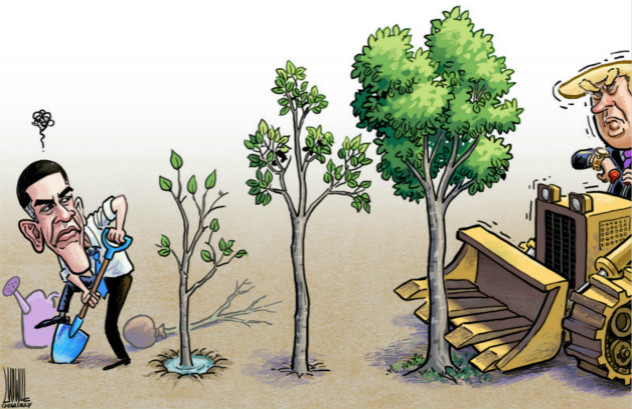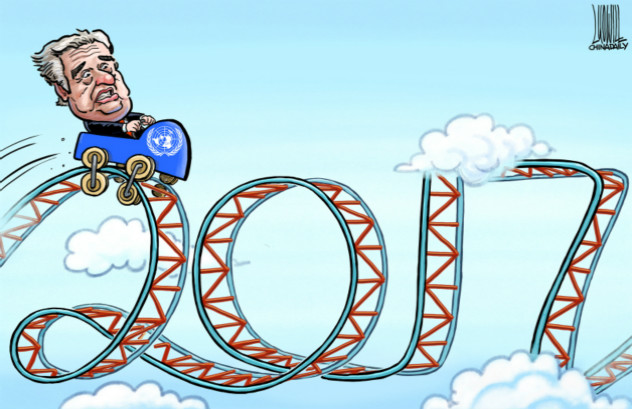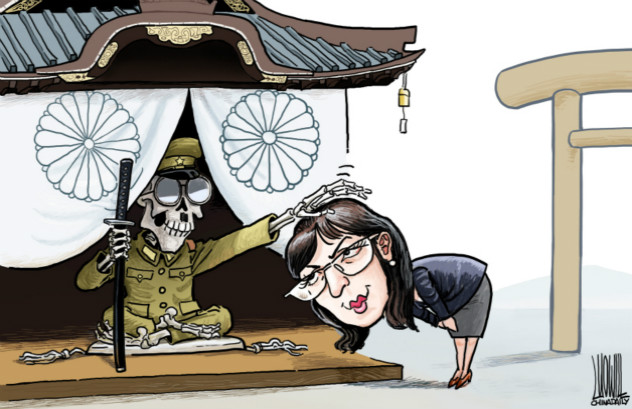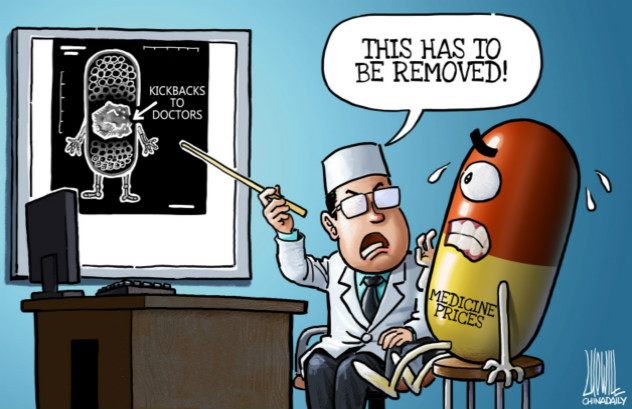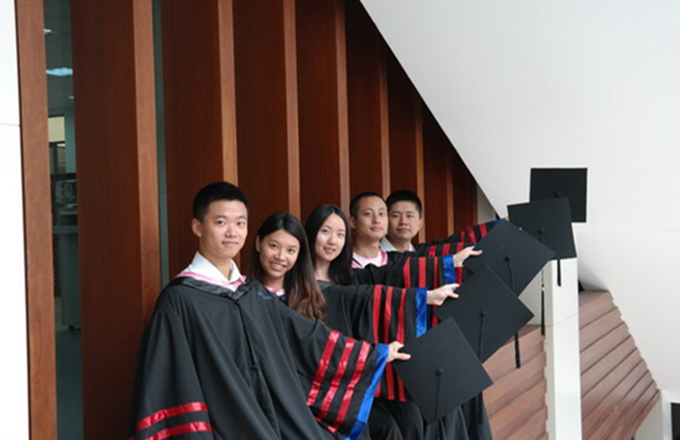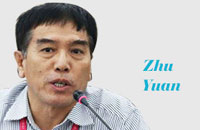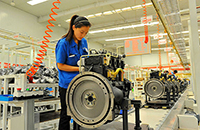Consensus between govt and people important in fight against pollution
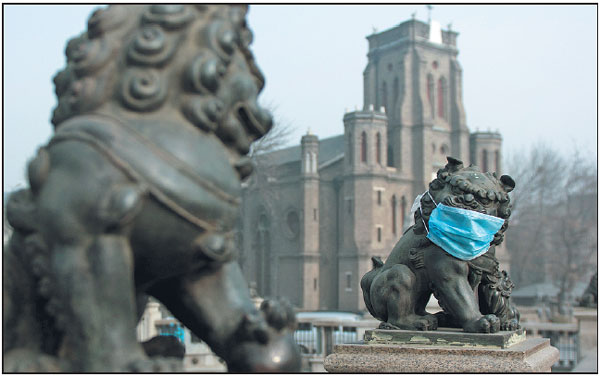 |
|
A stone lion on a bridge in Tianjin is covered with a mask in the heavy smog that has hit much of the country's northern regions. Tong Yu / For China Daily |
AT A MEDIA BRIEFING on Friday, Chen Jining, minister of environmental protection, said he "felt guilty" for the air pollution that has inconvenienced people's lives. Cai Qi, acting mayor of Beijing, expressed similar concerns at a seminar on Saturday that was also attended by 16 citizen representatives. Beijing News commented on Sunday:
Instead of equivocating about the severe air pollution in North China, the two senior officials sought to address it in a candid manner. They not only conveyed how serious the lingering smog was but also proposed long-term, sustainable measures to keep the sky clear.
Such sincerity should make residents and officials in smog-stricken cities like Beijing reach a consensus on how to curb pollution. At the Saturday seminar, the acting mayor admitted that the forecast for heavy air pollution was not accurate enough and some local governments failed to take necessary precautions. He also said diesel-powered trucks, which account for just 5 percent of all local vehicles, could generate nearly half of the oxynitride emissions from vehicles.
The causes of smog can vary according to the weather and level or type of industrial pollution. To deal with such a situation, more open, benign interactions between citizens and environmental protection authorities are needed, especially because China is yet to put in place a functioning anti-smog mechanism.
Air pollution, to a large extent, is a result of longstanding obsolete production patterns and lifestyles, and how to efficiently curb such practices has become a touchstone of modern social governance.
But we should remember that many developed economies succeeded in their fight against air pollution not only because of governments' intervention and coordination, but also because of wider public support and participation. Open seminars can serve this purpose, because officials are less likely to avoid answering questions on such occasions. And the fact that the Beijing government has vowed to take multiple measures to manage diesel-powered vehicles and regularize environment inspections at the municipal level is something that other local governments should learn from.




